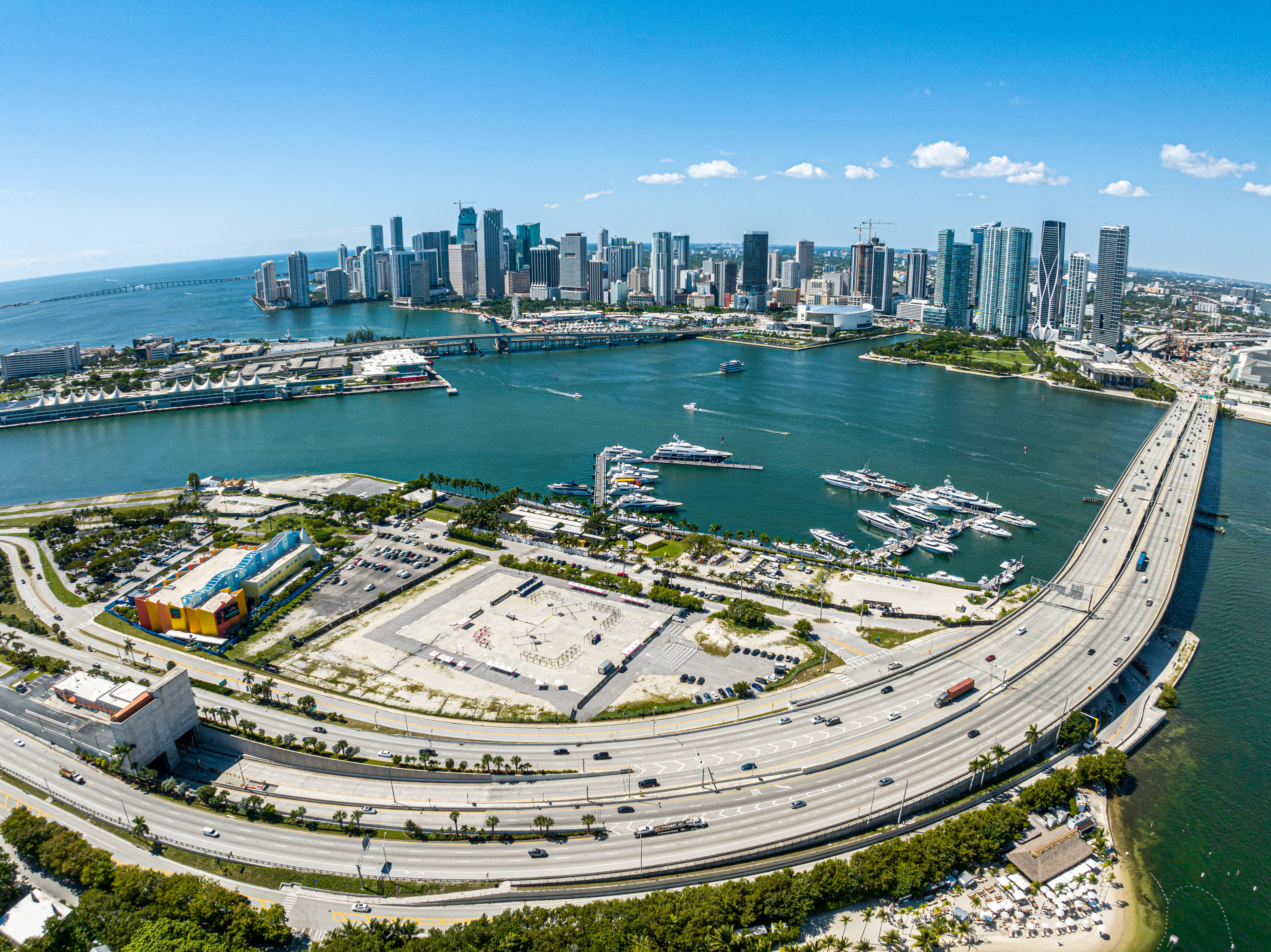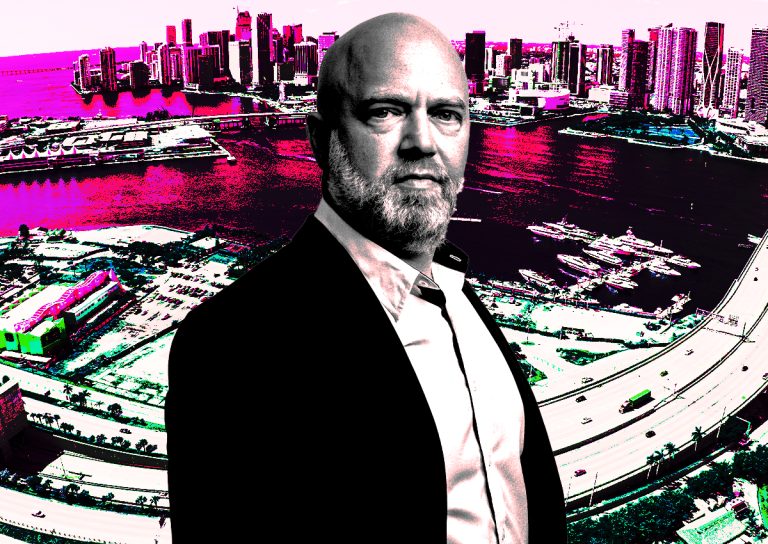Daniel Lebensohn is used to managing complex projects and market challenges. BH3 Management, the company he runs with partner Greg Freedman, began in 2009 when it began buying nonperforming loans from banks.
One of their first deals was with Michael Dell’s MSD Capital in Miami Beach. Lebensohn listened remotely while Freedman and their former partner, Charles Phelan, met with MSD to view his presentation in person on a shared PC. This was before Zoom.
“One of the first structure proposals they sent was overkill,” Lebensohn said of MSD. “I wrote to (Freedman) about his ICQ. I said, “What do these guys think we are, baggage handlers?” Well, he started blowing up my phone. They could see my screen. Long story short, we luckily closed the deal on better terms.
While many might think that BH3 stands for the Hebrew phrase Baruch Hashem, meaning “blessed be God”, it is actually “baggage handlers times three”, for the original three partners.
Since then, the asset management, investment and development company has acquired, managed or developed more than $2 billion in loans and properties, maintaining a relationship with MSD. Lebensohn is co-CEO, along with Freedman.
“It’s symbolic of what we do and what we’re willing to do. At the time, we were on a tight budget. We watered the bamboo stalks because we couldn’t afford a landscaper,” Lebensohn said of the first contract with MSD. “We try to leave our ego at the door. And we also try to have fun and work with people we really enjoy working with.
In South Florida, BH3 co-developed Private Island Residences, a pair of 16-story buildings with 74 luxury condos in Aventura. The development has faced significant opposition, including lawsuits seeking to block the project, as well as a husband and wife who were arrested for allegedly trying to physically stop construction of the project. It was completed in 2017.
BH3’s current projects include the planned mixed-use development of a nearly 11-acre site on Watson Island in Miami. with the Motwani familyfrom Merrimac Ventures; as well as the planned two-tower multifamily project at 300 Andrews Avenue in Fort Lauderdale’s Flagler Village with Traina Companies.

Thanks to an opportunistic credit fund, BH3 provided this summer with $190 million refinancing to developer Michael Shvo, Deutsche Finance and a group of German institutional pension funds for the redevelopment of the Raleigh in Miami Beach.
Despite the Fed’s measures plan to lower rates This year, challenges remain for promoters seeking financing. Lebensohn spoke with The real deal on its prospects for 2024 and the BH3 projects.
What effects will the Fed’s planned rate cuts have on the market?
There is a psychological effect that triggers more activity.
We are creatures of habit (who) want to hear good news. It’s been a rocky road ahead in financial markets, combined with inflation, skyrocketing insurance costs, construction costs, and a myriad and confluence of events that have fundamentally hit investing commercial real estate.
The news of upcoming rate cuts already brings promise and hope for entrepreneurs in the sector. But ultimately, business is about the cost of capital as much as any other expense. Although commercial real estate has historically proven to be an excellent hedge against inflation, you still need to be able to maintain and retain the properties. What is prevalent in the market today is that many smart developments by competent developers are struggling to close the equity gap because they cannot recapitalize their properties that they have worked so hard on , because rates have not only increased, but they have increased at such a high rate. a rate that, in my opinion, is historically unprecedented.
Do you think many projects will fail?
It depends on the project. How much leverage did someone use when everything was flat, which has a direct correlation to what happens when things go wrong or go in the wrong direction? If someone took out an aggressive construction loan and then had to deal with escalating costs, then maybe add mezzanine financing to it, it really depends. What is the true cost of the loan?
It depends on the real origin of the equity. How long does it last? And does it have replenishment reserves?
This is not the great financial crisis. I’m not saying that things couldn’t theoretically get worse. But it’s very specific to an asset. So we wouldn’t invest entirely in New York real estate today, and many people won’t. It’s a four-letter word. They might not even go to New York. We say, “No, you need to look at this specific asset. »
What do you expect for 2024?
I think there are positive sides to the market. Development has been held back because of these things. I think general contractors and subcontractors don’t have as much pipeline as they would have expected. So there is more capacity. They are more willing to take on new projects and can perhaps become more flexible in terms of costs and pricing of these projects.
Are you looking for deals?
We are not a company that seeks to carry out dozens of primary projects above ground, because we are counter-cyclical. We have a credit business that buys back non-performing loans which, in the current context, benefit from very attractive spreads on construction and bridge loans.
Last year, BH3 and Merrimac Ventures purchased Flagstone Property Group’s leasehold interest in the long-stalled development site on Watson Island, where a site plan is approved for hotel, retail, l residential and public space. Miami voters approved the deal with the former developer in 2001. What’s the status?
This is a project that is in the preconstruction phase. We have the capital to pursue this objective and create value on these lands while the market solves its own problems. We have funding in place (for Watson Island).
How can we create value in the meantime?
By carrying out infrastructure works, preparing and optimizing the ground and the project, so that when it is officially launched and when it goes to market, it will simply have more value because it will be closer to construction.
Other developers awaiting funding are doing the same.
Some guys on shaken projects, they build their foundations, or they put the land aside, and they do what they have to do to hold on to it and wait for a better capital market. In 2024 alone, even if everything is not rosy, it is still a new year. At the end of the day, everyone is there to do business. People generally don’t want to stay away. So they get creative and come up with alternative instruments to make these agreements a reality. In some cases there will be a change in equity and ownership.
What is your timeline for the Fort Lauderdale project?
We have two approved towers on Andrews Avenue in Fort Lauderdale in the Flagler District for 612 units, two blocks east of the Brightline station. We are doing pre-construction related work, but we are not breaking ground yet for the reasons I explained earlier.
Learn more
How do you manage other increasing costs, like insurance?
Insurance costs have increased by more than 50 percent. This profoundly affects not only new projects – condos, rentals – but it also affects existing projects, even older projects. You must take this into account in your subscription.
Do you think the commercial real estate market is about to experience a “soft landing”?
This is to be determined. You can find good deals in every market, but you can get a lot of bad deals. The cost of capital is the key factor. Activity has slowed down a lot in 2023. I don’t necessarily see this as a negative. So I think that the breath of the market in 23, even if it did not smile on the side of stocks in anyone’s activities, is normal. I guess we’ll see. It’s just around the corner.

